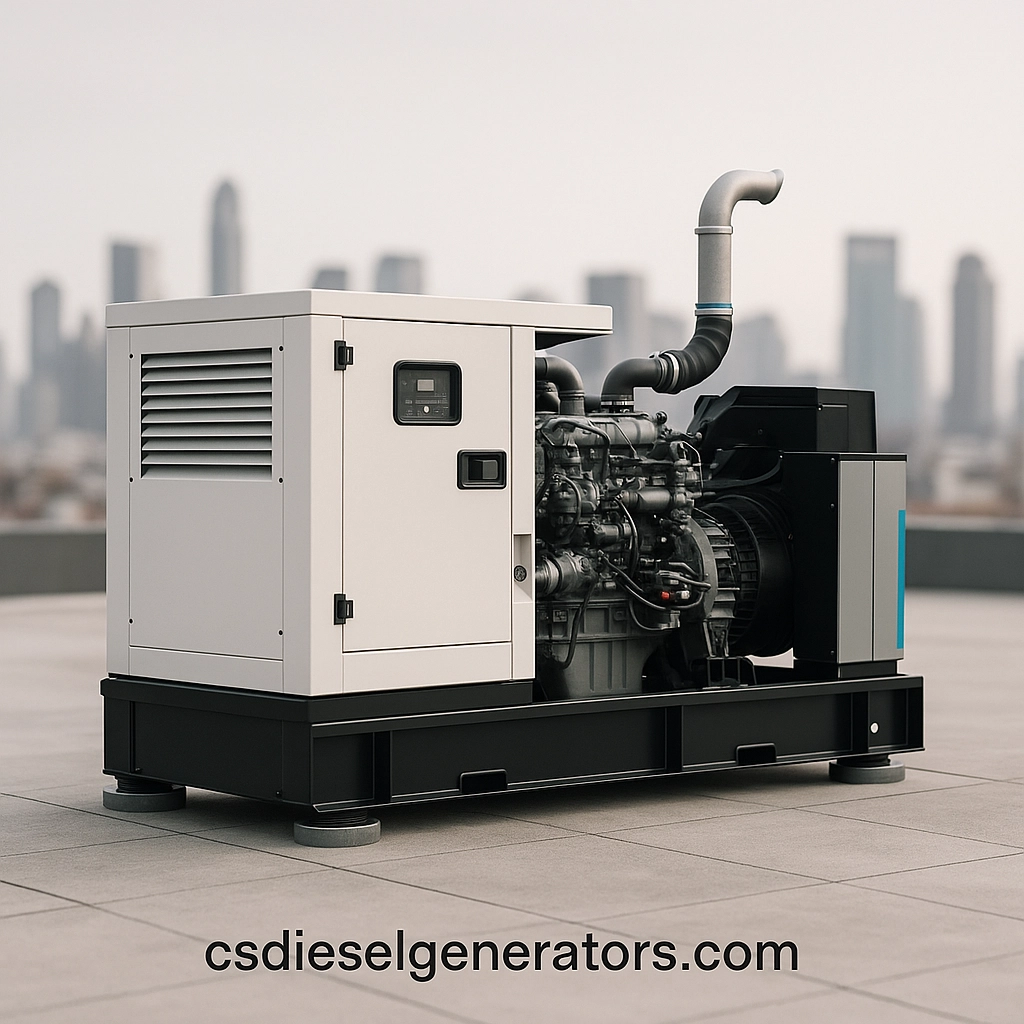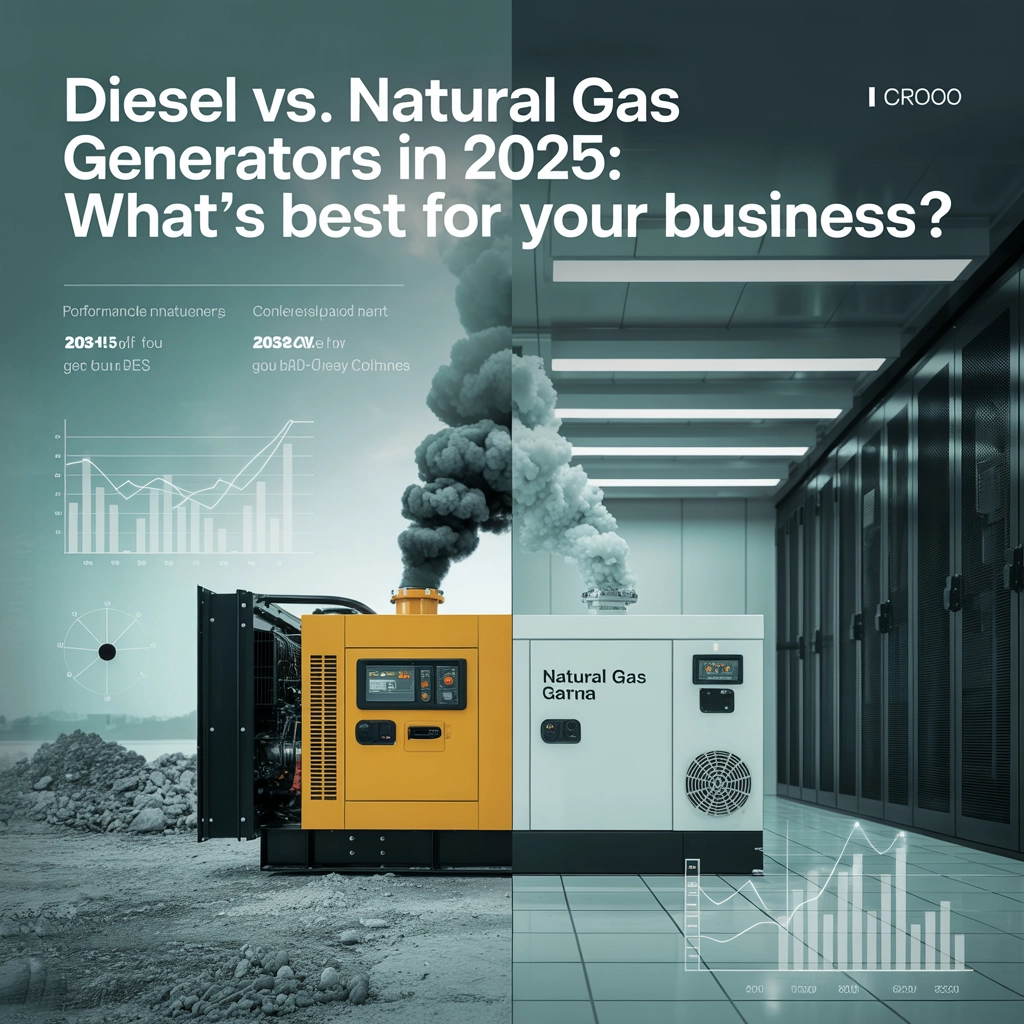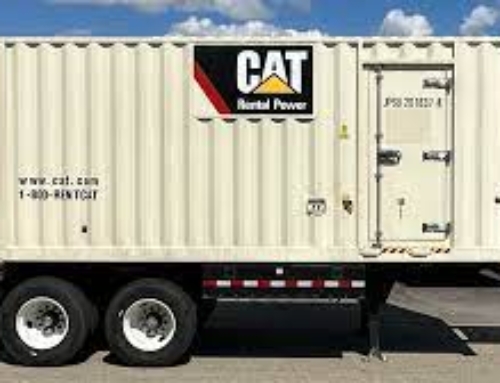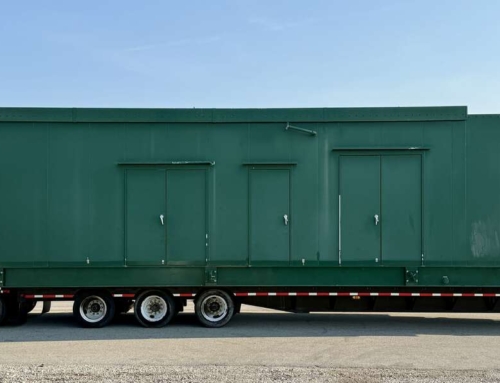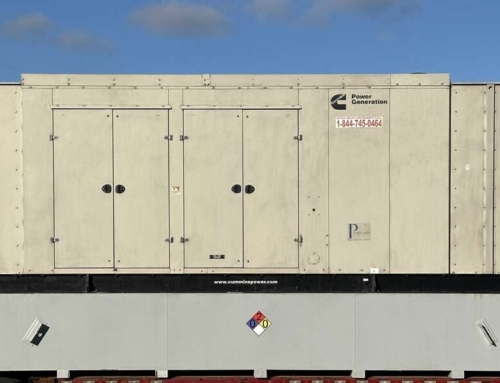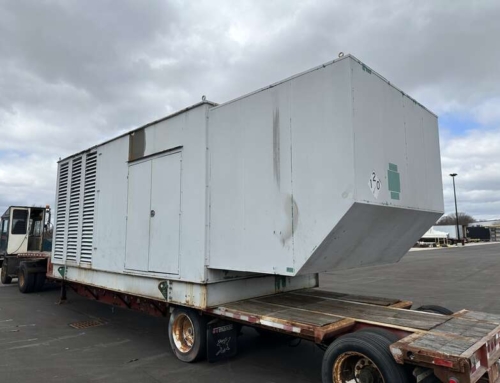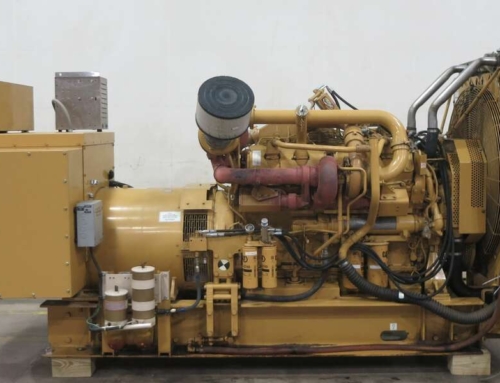When it comes to keeping your business running in 2025, generator reliability is more vital than ever. Whether you’re handling mission-critical operations, powering remote sites, or protecting against outages, choosing the right industrial generator is a decision you can’t take lightly. So, should your business go with a diesel or natural gas generator? Let’s break down the core differences and help you zero in on what’s best for you.
Diesel Generators: Built for Tough Jobs
Diesel generators have long been the backbone of backup and primary power in industrial settings. Their reputation for durability, efficiency, and raw power is well earned.
Key Strengths
- Superior Efficiency & Power Density: Diesel fuel contains more energy per unit (about 129 BTU per unit) than natural gas, so every gallon packs a punch.
- Long Lifespan: Industrial diesel generators feature robust construction, liquid cooling, and operate at lower RPMs (usually 1800 RPM), ensuring years—if not decades—of reliable service.
- Rapid Startup: Diesel generators can reach full power in 10 seconds or less, a huge benefit where downtime is costly.
- Cold-Weather Reliability: Diesel engines thrive in cold climates, especially when equipped with engine block heaters or glow plugs.
What to Watch Out For
- Fuel Costs: Diesel is generally more expensive per BTU than natural gas, and prices can fluctuate.
- Fuel Storage: Diesel needs to be stored on-site, requiring tanks, regular inspections, and fuel management to avoid contamination.
- Environmental Impact: Diesel’s emissions are higher, which may matter for businesses concerned with sustainability or subject to local emission standards.
- Maintenance: Requires vigilant fuel management, periodic testing, and more hands-on care.
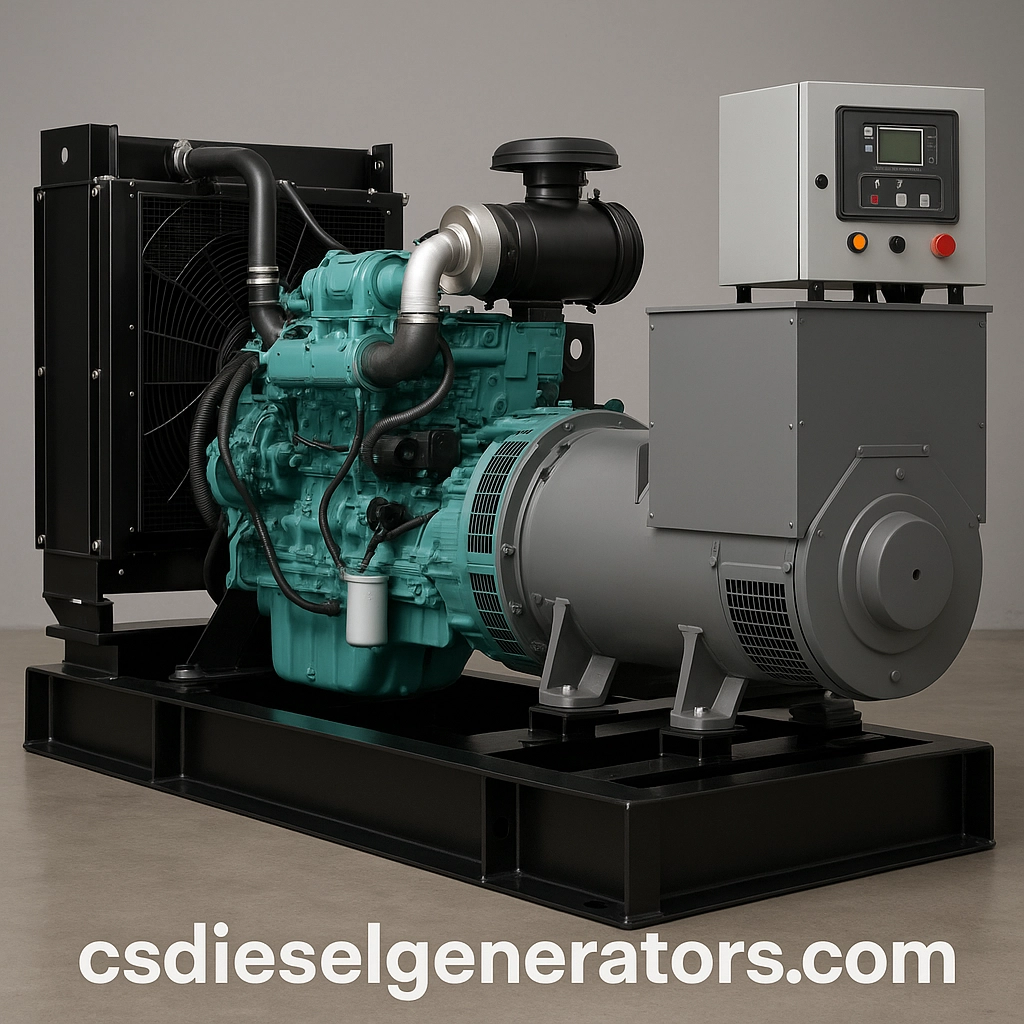
Learn more: Discover our wide selection of diesel generators for every industrial application.
Natural Gas Generators: Clean, Cost-Efficient Power
Natural gas generators are increasingly popular for businesses prioritizing operational cost savings, environmental responsibility, and convenience.
Core Advantages
- Lower Fuel Cost: Natural gas is less expensive and more price-stable than diesel, lowering your long-term operating expenses.
- Cleaner Emissions: Burn cleaner, producing less particulate matter and fewer greenhouse gases.
- No On-Site Storage Hassles: Direct connection to utility lines eliminates the headache of fuel deliveries, monitoring, and contamination.
- Low Maintenance: Fewer moving parts, less wear and tear, and no fuel going bad in the tank.
Potential Downsides
- Fuel Supply Reliance: Your generator is only as reliable as the gas line feeding it. Natural disasters or infrastructure failures can disrupt supply.
- Lower Power Density: You’ll need more natural gas to match the energy output of diesel.
- Slightly Longer Startup: Generally a bit slower than diesel units, though still fast enough for most commercial needs.
- Cold Weather Sensitivity: Can be more affected by freezing temps unless properly equipped.
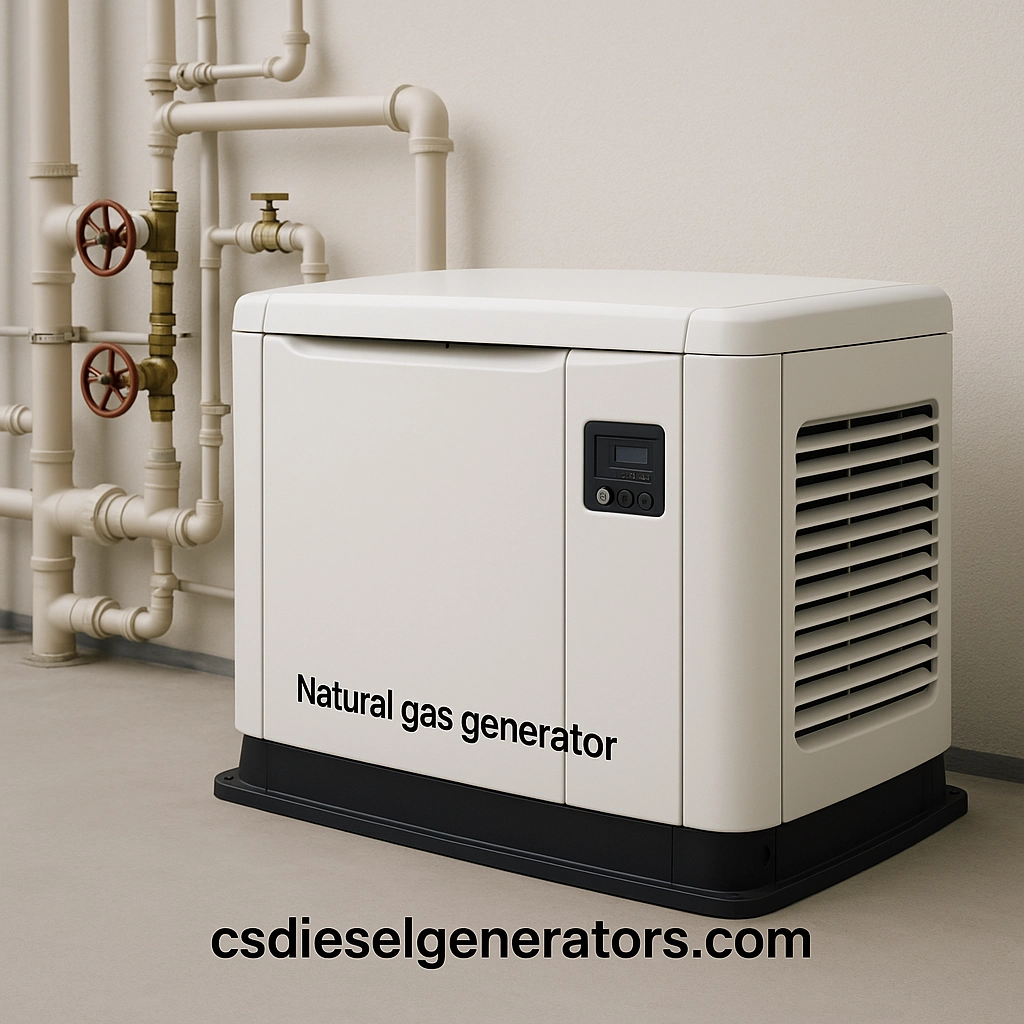
Looking for commercial solutions? Browse our commercial generator inventory or check out our load management tips.
Head-to-Head: Diesel vs. Natural Gas Generators
| Factor | Diesel | Natural Gas |
|---|---|---|
| Energy Efficiency | Best-in-class, higher BTU per unit | Lower, requires more fuel for same output |
| Fuel Cost | Higher, fluctuates with markets | Lower, more stable |
| Installation Cost | Higher (needs on-site storage, more safety requirements) | Lower if gas mains are present |
| Startup Time | Excellent, 10 seconds or less | Good, slightly slower (varies by system) |
| Operating Life | Longer, built for demanding 24/7 use | Shorter, but ample for backup/average run times |
| Cold Weather | Outstanding reliability | Needs cold-weather upgrades |
| Maintenance | More complex, requires regular fuel management | Simpler, mostly routine checks |
| Fuel Supply | Delivered and stored onsite, good for remote areas | Dependent on utility infrastructure |
| Environmental Impact | Higher emissions | Burns cleaner, fewer pollutants |
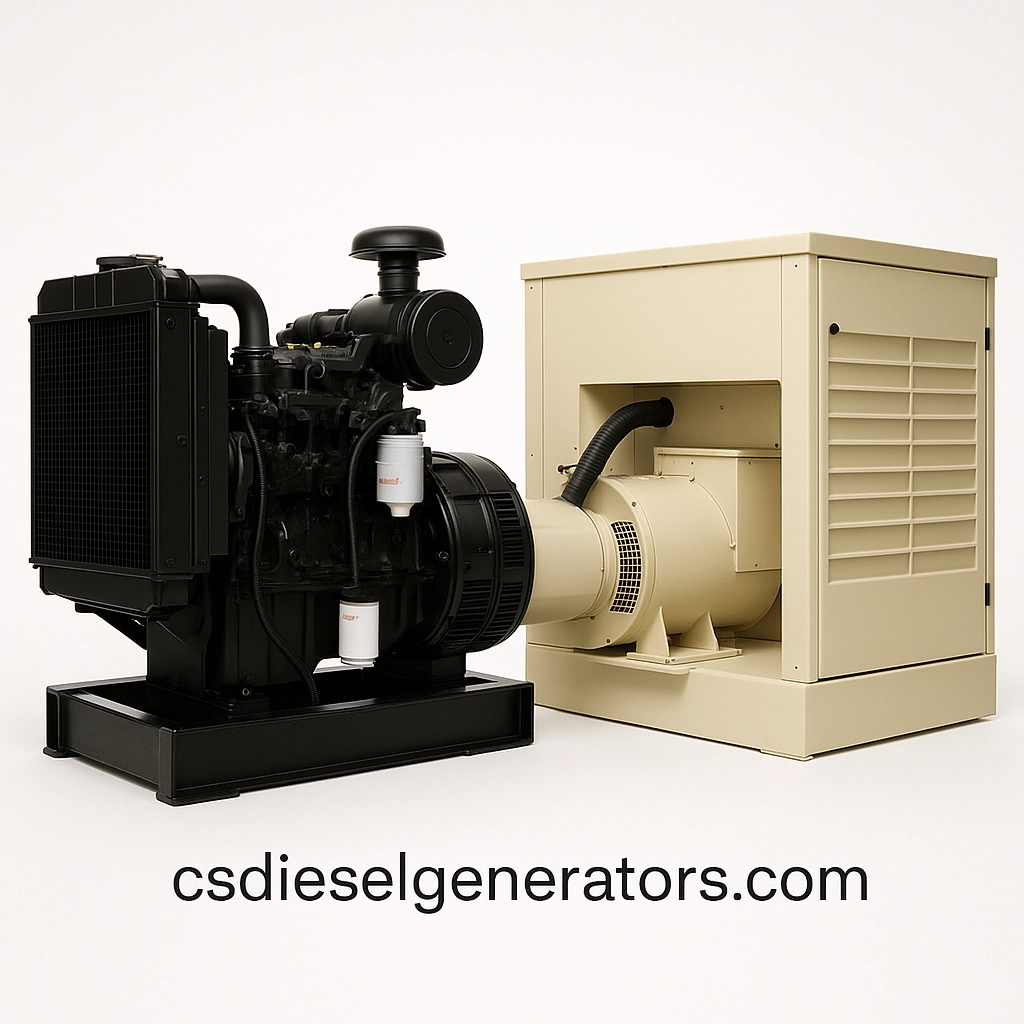
Practical Considerations for 2025
1. Your Facility’s Location
- Remote/Rural: Diesel is the default. Fuel can be delivered anywhere, no gas lines needed.
- Urban/Connected Sites: Natural gas is more convenient and cost-effective where infrastructure exists.
2. Type of Power Need
- Emergency Backup: Diesel offers quicker startups and reliable power, especially when the grid is down.
- Prime/Continuous Power: Natural gas shines with lower fuel costs over long run periods.
3. Weather & Environment
- Diesel remains the king for frigid climates.
- Natural gas is an eco-friendlier solution—great if emission regulations are tightening in your area.
4. Budget & Operating Cost
- Diesel: Higher up-front (installation/storage) and ongoing fuel costs but unbeatable for high surge power demands.
- Natural Gas: More affordable for frequent or continuous use. The price stability can simplify financial forecasting.
Which Is Best for Your Business?
-
Choose Diesel Generators If:
- You need maximum reliability in remote or off-grid areas
- Heavy industrial loads demand rapid, high-power output
- Cold weather conditions are the norm
- On-site fuel autonomy is a business priority
-
Choose Natural Gas Generators If:
- You have stable access to utility gas lines
- Environmental impact or emissions are a concern
- Your business model favors lower operating costs
- You’re running generators for extended or continuous periods
-
Hybrid Solution? Some businesses use both: diesel for emergency/peak load, natural gas for regular operation.
If you’re still feeling unsure, our experts at Central States Diesel Generators can help analyze your site conditions, load requirements, and local regulations to guide you to the best decision for 2025 and beyond.
Ready for Reliable Backup Power in 2025?
Explore our full range of:
- Industrial diesel generators
- Natural gas and commercial generators
- Emergency generator testing services
Get expert advice, request a quote, or contact us directly at csdieselgenerators.com.
Don’t get caught in the dark—power your business with confidence.
